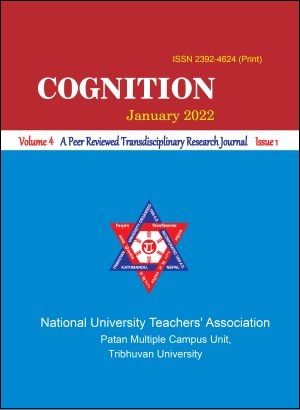Women Entrepreneurship in Nepalese Context: A Critical Study of its Problems and Suggestions
DOI:
https://doi.org/10.3126/cognition.v4i1.46451Keywords:
Entrepreneurship, Economic Empowerment, Education, Women Empowerment, Sustainable DevelopmentAbstract
Women entrepreneurship is the most Important factor in economic and social development of the country. They are financially supported by the banks and cooperatives companies. Women entrepreneurs are given encouragement by their family members in their business activities. Nepal has framed a policy to develop entrepreneurial skills to women. The country has managed different vocational education and training to women to climb the ladder of development and empowerment from their family spheres to public spheres. Series of training programs have lunched to gradually widened the horizon for economic empowerment of women. It is found that numerous women becoming successful in entrepreneurship both in social and economic fields in our country. It is to be kept in mind that providing skill training on entrepreneurship is not the only responsibility of Government, but also other stakeholders need to pitch in. There are so many problems facing by women entrepreneurs in our society. This paper analyses the problems of women entrepreneurs as financial constraints, marketing problems, and lack of human resources, lack of raw materials, Stiff competition, and High cost of production, Limited managerial ability, Absence of Entrepreneurial Attitude, patriarchal Society, and Family Conflicts etc. To help women entrepreneurs from stumbling blocks, The article explains different suggestions to overcome them.




